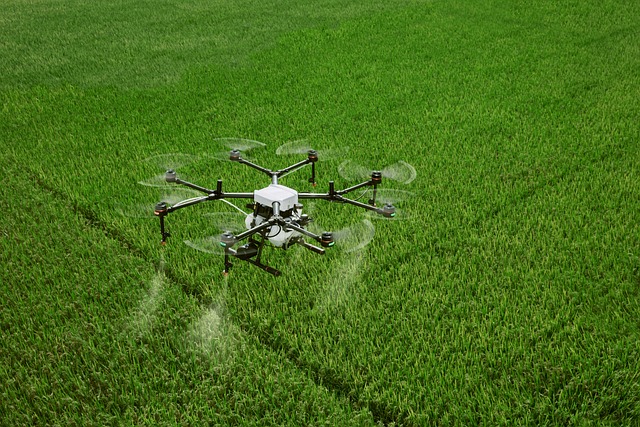The Green Revolution 2.0 is ushering in a new era of agricultural innovation, leveraging technology to enhance productivity and sustainability. Among the key players in this revolution are agricultural drones, which are reshaping traditional farming practices. Let’s explore how these unmanned aerial vehicles (UAVs) are transforming agriculture
- Precision Agriculture:
- Precision agriculture is at the forefront of the Green Revolution 2.0. It harnesses technologies such as GPS, drones, sensors, and data analytics to optimize farming practices.
- By precisely mapping fields, monitoring crop health, and managing resources efficiently, precision agriculture enables farmers to maximize yields while minimizing inputs like water, fertilizers, and pesticides.
- This data-driven approach allows for targeted interventions, reducing waste and environmental impact.
- Smart Farming with IoT:
- The Internet of Things (IoT) is revolutionizing farming through connected devices and real-time data collection.
- Automated irrigation systems, remote livestock monitoring, and predictive analytics for crop management are now possible.
- Leveraging IoT, farmers make data-driven decisions that improve efficiency, reduce costs, and optimize resource use.
- Agricultural Biotechnology:
- Biotechnology advancements, including genetic engineering and gene editing, are revolutionizing crop breeding.
- Biotech crops are engineered to be more resilient to pests, diseases, and environmental stresses, leading to higher yields and improved crop quality.
- Biotechnology also holds promise for developing crops with enhanced nutritional profiles, contributing to food security and public health.
- Robotics and Automation:
- Autonomous tractors, drones, and robotic arms are transforming agriculture by automating labor-intensive tasks.
- These technologies not only increase productivity but also address labor shortages in the agricultural sector.
- From planting to harvesting, robotics and automation improve efficiency and reduce costs.
- Farm Management Software:
- Farm management software platforms empower farmers with digital tools for planning, monitoring, and decision-making.
- Features include crop planning, inventory management, weather forecasting, and financial analysis.
- By centralizing data and providing actionable insights, these platforms optimize operations and improve overall productivity.
Agricultural drones play a pivotal role in the Green Revolution 2.0. Their ability to collect real-time data, monitor crops, and enhance precision farming practices is revolutionizing the way we cultivate food. As technology continues to evolve, we can expect even greater advancements in sustainable and efficient agriculture.


